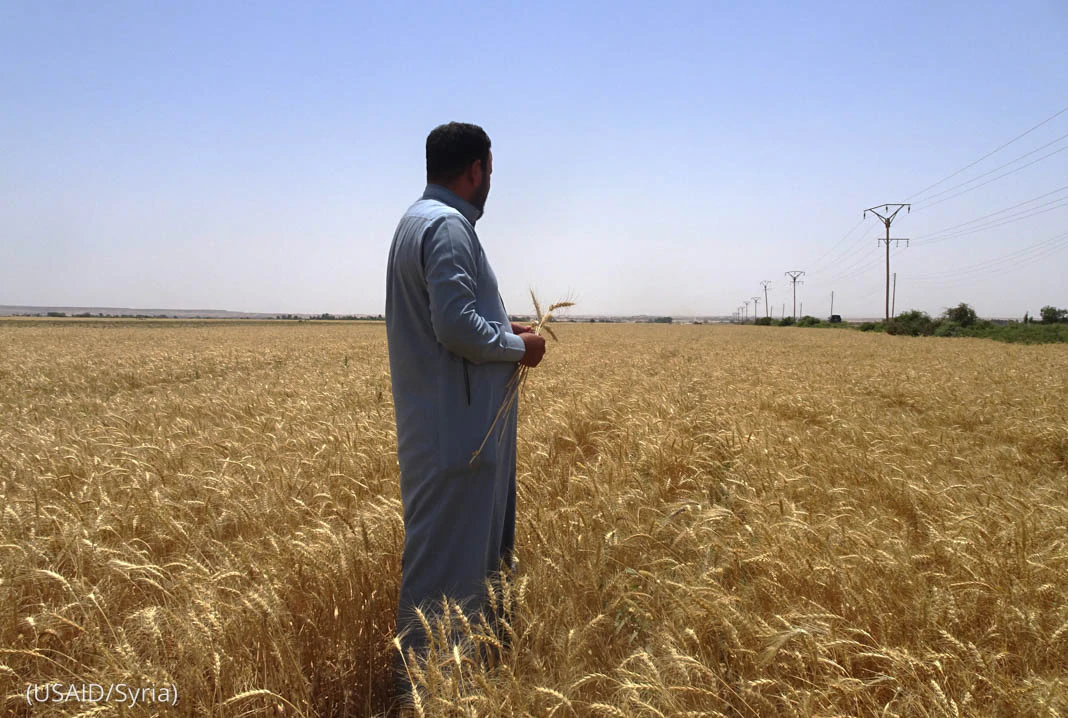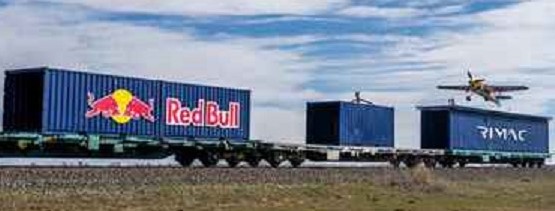The United States is providing high-quality seeds to wheat farmers in northeast Syria to help feed people during the global food security crisis.
Northeast Syria experienced one of its worst harvests on record in 2021. To prevent a recurrence, the U.S. Agency for International Development (USAID) answered local Syrians’ requests for assistance and provided nearly 3,000 metric tons of high-quality wheat seeds in time for the 2021 winter planting season.
Wheat is the backbone of Syrian agriculture, but wheat farmers in Hasakah and Deir ez-Zour in northeast Syria have suffered from below-average rainfall and low Euphrates River levels, as well as rising costs for supplies like seeds, fertilizer and farming equipment.
Exacerbating the impact of climate change, Russia’s war against Ukraine choked Ukrainian agricultural exports, including wheat, grain and vegetable oil. Such supply chain disruptions can contribute to overlapping agricultural crises that lead to malnutrition.
Here is how USAID helped wheat farmers in northeast Syria improve access to food:
- Working with partners in the Kurdish region of Iraq, USAID identified seeds suitable for conditions in northeast Syria and conducted laboratory testing to ensure the seeds were of good quality. Truckloads of seeds were transported from Iraq to Syria in time for the 2021 winter planting season.
After consulting with agricultural cooperatives, USAID identified farmers who would most benefit from the new varieties of high-quality seeds. In November and December 2021, nearly 7,000 farmers collected the seeds that would allow them to increase production and make future harvests in Hasakah and Deir ez-Zour more resilient.
- Wheat is a primary winter crop in northeast Syria, but limited availability and high seed prices have posed major obstacles for farmers. In Deir ez-Zour, the price of wheat seeds increased by up to 17% in 2021, according to the Food and Agriculture Organisation. With USAID’s seed delivery, farmers planted approximately 10,715 hectares of wheat.
- The nearly 3,000 metric tons of USAID-donated seeds produced 35,000 metric tons of wheat, more than a tenfold return. Strong yields translate into increased income for farmers in non-regime held parts of northeast Syria.
A farmer in northeast Syria said: “The high-quality seeds I received from the United States produced around 30 bags of wheat, while the local seeds produced less than 20 bags.”
- By providing new varieties of high-quality seeds, USAID not only improved one year’s harvest, but also ensured farmers could harvest better quality seeds for their next planting season. The farmers’ customers include local authorities that provide subsidized bread to local residents, increasing access to affordable food.
USAID programs are working to prevent a catastrophic food shortage and deep economic hardship in the near future.











